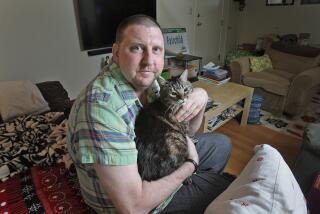MEDICINE : Death of Canada ‘Right to Die’ Advocate Triggers New Debate : Her legal battle and physician-assisted end spur chances for legislation to protect doctors who help perform euthanasia.
- Share via
TORONTO — The physician-assisted suicide of Canada’s leading advocate of the “right to die” has triggered a new national debate on euthanasia and dramatically improved chances for legislation that would protect doctors who aid in the consensual death of a patient.
A special committee of the Canadian Senate is scheduled to begin hearings on the issue in two weeks, and Prime Minister Jean Chretien has promised a rare “free vote” on the question in Parliament, meaning members will be permitted to vote their conscience rather than follow an official party position. Opponents, including religious organizations and some medical ethicists, plan a high-profile counterattack.
The Canadian Medical Assn. is also struggling with the issue and is expected to take a position at its annual meeting in Montreal in August.
All of this follows the Feb. 12 death of Sue Rodriguez, 43, in her suburban Victoria, British Columbia, home. Rodriguez, who was in the latter stages of amyotrophic lateral sclerosis (Lou Gehrig’s disease), died in the arms of a member of the Canadian Parliament after being assisted by an as yet unidentified doctor. Her death followed a long, well-publicized but unsuccessful legal battle for the right to a physician-assisted suicide.
“She opened the eyes of the Canadian people to the issue of how we die in this society and the options available for people with diseases like cancer and ALS,” said Victoria lawyer Chris Considine, who represented Rodriguez. Surveying the chances for a legislative change in the law, Considine added: “Sue lost the (legal) battle, but she won the war.”
A national poll taken within weeks of Rodriguez’s death showed wide support for her cause among the Canadian public, with 74% agreeing that doctors “should be legally permitted to assist the death of a terminally ill patient who wants to die.”
Dr. Fred Lowy, director of the Centre for Bioethics at the University of Toronto, suggests that the numbers may be deceiving.
“I don’t think anybody really knows where this is heading,” he said. “There’s no doubt the public sentiment in this country, and in the U.S. and Britain, is hugely in favor. . . . But a lot depends on how you ask the question.”
Euthanasia opponents point to the California experience of 1992, in which voters rejected a right-to-die measure despite early favorable polls.
The question probably will not be submitted to voters here.
British Columbia member of Parliament Svend Robinson, who became Rodriguez’s close friend and supporter during her court fight, tearfully described her death to reporters two days after it happened. Robinson, Parliament’s first openly gay member and long identified with controversial causes, has introduced a bill in the House of Commons to legalize physician-assisted suicide.
The more likely starting point for any successful legislation, however, is the seven-member Senate committee, chaired by Joan Neiman, a Liberal from Ontario. The Senate is an appointed body in Canada and thus less subject to the buffeting of politics.
Neiman said the hearings set for this month will be extensive, and she is “quite confident” the Liberal government will use the committee report in formulating legislation.
The most probable scenario for liberalization would be for Canada to follow the example of the Netherlands, which has enacted regulations that in effect prevent prosecution of doctors who carry out euthanasia.
Robinson, following Rodriguez’s wishes, has refused to identify the doctor who aided in her death from an overdose of morphine and secobarbital.
The Royal Canadian Mounted Police are investigating, but authorities say it is unlikely anyone will be charged even if the physician is identified.
More to Read
Sign up for Essential California
The most important California stories and recommendations in your inbox every morning.
You may occasionally receive promotional content from the Los Angeles Times.













